
Sir James Stuart, 1st Baronet of Oxford (March 2, 1780 – July 14, 1853) was a lawyer, judge, and political figure in Lower Canada.

Sir James Stuart, 1st Baronet of Oxford (March 2, 1780 – July 14, 1853) was a lawyer, judge, and political figure in Lower Canada.
He was born in Fort Hunter, New York, in 1780, the son of the Anglican priest John Stuart, a United Empire Loyalist. He studied at King's College in Windsor, Nova Scotia and then apprenticed in law in Lower Canada with John Reid and then Jonathan Sewell; he was called to the bar in 1801.
Stuart served as personal secretary for Lieutenant Governor Sir Robert Shore Milnes. In 1805, he was named solicitor general for the province. Stuart was elected to the Legislative Assembly of Lower Canada for Montreal East in 1808 and was reelected in 1809. He supported the Parti canadien in the assembly. He was defeated in 1810, but elected for Montreal County in an 1811 by-election and served as leader of the Parti canadien, replacing Pierre-Stanislas Bédard. In 1814, he was elected for both Montreal and Buckingham counties and chose to represent Montreal; he was reelected in 1816. In the assembly, Stuart led the attack against the judges Jonathan Sewell and James Monk; it was felt that by revising the rules of practice for the courts, these judges had stepped outside of their jurisdiction and taken on authority that should have been under the control of the legislature. After his party lost interest in pursuing this issue after 1817, Stuart lost interest in the affairs of the assembly. He was not reelected in 1820.
Unlike his former party, Stuart supported the union of Upper and Lower Canada proposed in 1822. In 1825, he was named Attorney General for Lower Canada. He was elected to the assembly for the riding of William-Henry in an 1825 by-election, now a supporter of the British party; he was defeated by Wolfred Nelson in the general election held in 1827. Stuart was named to the Executive Council of Lower Canada in 1827 and served until the union of Upper and Lower Canada in 1841. He was dismissed as attorney general in 1832, after having been accused by the assembly of conflict of interest in a case involving the Hudson's Bay Company, which had retained Stuart as its attorney, and other abuses of his position. He was offered the position of Chief Justice for Colony of Newfoundland as a form of compensation, but refused this offer and returned to private practice. He served as a member of the Special Council that governed the province after the Lower Canada Rebellion and was president of this council from 1839 to 1841. Stuart was also named Chief Justice of Lower Canada in 1838. In 1841, he was created a baronet, of Oxford in the County of Oxford. [1]
He died at Quebec City in 1853.
His brother Andrew was also a lawyer and a long-time member of the legislative assembly. His nephew George Okill Stuart later served in the legislative assembly for the Province of Canada and also as a mayor of Quebec City.

This section of the Timeline of Quebec history concerns the events in British North America relating to what is the present day province of Quebec, Canada between the time of the Constitutional Act of 1791 and the Act of Union 1840.
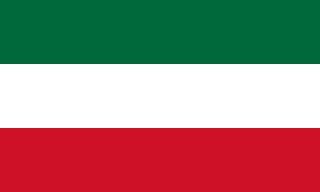
The Parti canadien or Parti patriote was a primarily francophone political party in what is now Quebec founded by members of the liberal elite of Lower Canada at the beginning of the 19th century. Its members were made up of liberal professionals and small-scale merchants, including François Blanchet, Pierre-Stanislas Bédard, John Neilson, Jean-Thomas Taschereau, James Stuart, Louis Bourdages, Denis-Benjamin Viger, Daniel Tracey, Edmund Bailey O'Callaghan, Andrew Stuart and Louis-Joseph Papineau.

John Neilson was a journalist, publisher and politician in Lower Canada. Born in Scotland, he emigrated to Lower Canada in 1791 at age 15, to work in his older brother's publishing company in Quebec City. On his brother's death a few years later, he inherited the business. Neilson became one of the leading publishers and booksellers in Lower Canada and in Upper Canada, selling books in both French and English. He was the editor of the newspaper La Gazette de Québec / The Quebec Gazette, published in French and in English.
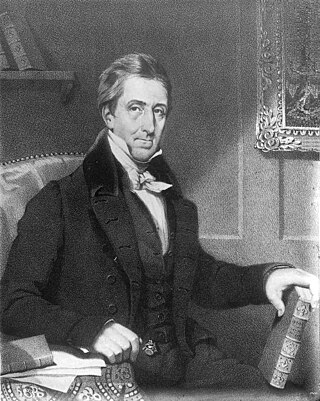
Denis-Benjamin Viger was a 19th-century politician, lawyer, and newspaper publisher in Lower Canada, who served as joint premier of the Province of Canada for over two years. A leader in the Patriote movement, he was a strong French-Canadian nationalist, but a social conservative in terms of the seigneurial system and the position of the Catholic church in Lower Canada.

Augustin-Norbert Morin was a Canadien journalist, lawyer, politician, and rebel in Lower Canada. He was a member of the Legislative Assembly of Lower Canada in the 1830s, as a leading member of the Parti patriote. Although he participated in the Lower Canada Rebellion, the British authorities concluded his conduct did not warrant a charge of high treason. After the Rebellion, he entered politics in the Province of Canada, eventually becoming joint premier of the Province. Retiring from politics due to health concerns, Morin was appointed to the bench. He was one of the commissioners who codified the law of Lower Canada, producing the Civil Code of Lower Canada which stayed in force for over a century.
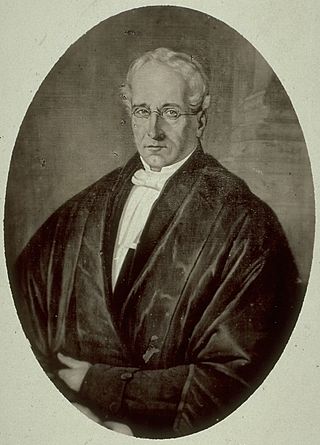
Austin Cuvillier was a businessman and political figure in Lower Canada and Canada East. He was a successful Canadien businessmen, unusual when most businessmen in Lower Canada were British. He also was a member of the Legislative Assembly of Lower Canada for twenty years, as a member for the Parti canadien, which tended to oppose the policies of the British-appointed governors. As a result, he served as a bridge between the conservative business community, and the more radical Parti canadien, although he finally broke with the Parti canadien prior to the Lower Canada Rebellion of 1837–1838.

Robert Christie was a lawyer, journalist, historian and political figure in Lower Canada and Canada East. Born in Nova Scotia, he moved to Lower Canada as a young man. Elected to the Legislative Assembly of Lower Canada, he generally supported the Parti bureaucrates, or government group. He opposed the union of Lower Canada with Upper Canada, but was elected to the Legislative Assembly of the Province of Canada. As a member, he remained opposed to the union and was an independent, not supporting any particular party. He had a reputation for being hot-headed, but also incorruptible.

Charles Richard Ogden, was a Joint Premier of the Province of Canada for Canada East from 1841 to 1842 with William Henry Draper PM for Canada West. Odgen was a member of the Château Clique, the group of English-speaking officials who supported the Governor General, appointed by the British government. Trained as a lawyer, he developed a lucrative practice at Trois-Rivières and then Montreal. He had a lengthy career as a member of the Legislative Assembly of Lower Canada.
The Legislative Council of Lower Canada was the upper house of the Parliament of Lower Canada from 1792 until 1838. The Legislative Council consisted of appointed councillors who voted on bills passed up by the Legislative Assembly of Lower Canada. The legislative council was created by the Constitutional Act. Many of the members first called in the Council in 1792 had served as councillors in the Council for the Affairs of the Province of Quebec.
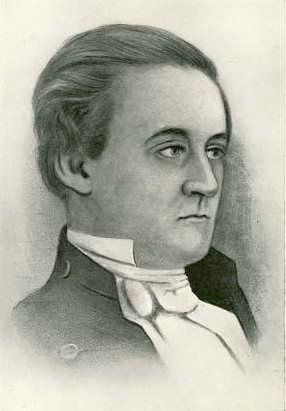
Lewis Thomas Drummond was a lawyer, political figure, and judge in Lower Canada.

James Leslie was a Canadian businessman and political figure. An immigrant from Scotland in 1804, he became a successful Montreal businessman and was one of the founders of the Bank of Montreal.

Thomas Cushing Aylwin was a lawyer, political figure and judge in Lower Canada. He was born in Quebec City and trained as a lawyer, including a period of education at Harvard University. He developed a reputation as an excellent trial lawyer, particularly in criminal cases. He became interested in politics and supported the nationalist Parti canadien in their struggles with the British governors of the province. He did not support the armed rebellion in 1837, but defended some of the individuals accused of treason or other crimes for their roles in the rebellion.
Amable Berthelot was a Canadien lawyer, author and political figure. He was elected to the Legislative Assembly of Lower Canada and later to the Legislative Assembly of the Province of Canada. Trained as a lawyer, he was an avid book-collector, at one point having a personal library of some fifteen hundred volumes. He did not support those who took up arms during the Lower Canada Rebellion of 1837–1838. He never married, but adopted two children, a boy and a girl. His daughter married Louis-Hippolyte LaFontaine, later co-premier of the Province of Canada. He was a literary mentor to François-Xavier Garneau.
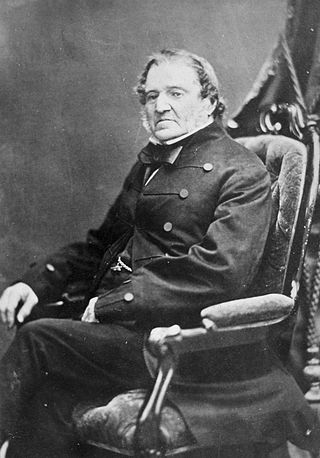
Frédéric-Auguste Quesnel,, was a lawyer, businessman and politician in Lower Canada. He was a member of the Legislative Assembly and the Executive Council of Lower Canada. Following the union of the Canadas, he was elected to the Legislative Assembly of the Province of Canada and later was appointed to the Legislative Council. Throughout his career he was a political moderate, seeking greater political power for French-Canadians under British rule, but also supporting the British connection generally. Condemned by the Patriotes as a vendu ("sell-out") in the Lower Canada Rebellion, in 1860 he was elected President of the Saint-Jean-Baptiste Society of Montreal.

Charles Laberge was a Quebec lawyer, journalist and political figure.

Pierre-Amable de Bonne was a seigneur, lawyer, judge and political figure in Lower Canada.

Pierre-Stanislas Bédard was a lawyer, judge, journalist and political figure in Lower Canada.
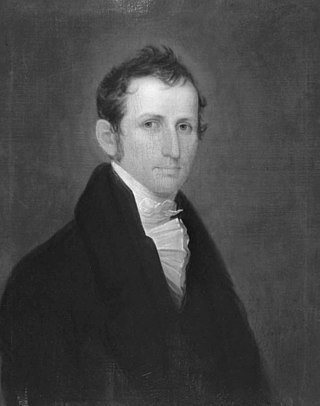
Andrew Stuart was a lawyer and political figure in Lower Canada.
Lt.-Colonel The Hon. Jean-Georges-Barthélemy-Guillaume-Louis Gugy represented Saint-Maurice in the Legislative Assembly of Lower Canada and the Legislative Council of Lower Canada. In his early years at Trois-Rivières he was Justice of the Peace, Colonel of the militia and Sheriff. On entering politics he came to Montreal where he was appointed Sheriff and was elected the first president of the Montreal Mechanics' Institution. He inherited five seigneuries from his uncle, Conrad Gugy.
Michael O'Sullivan was a lawyer, militia officer, politician and judge in Lower Canada. Born in Clonmel, Ireland, he emigrated to Lower Canada as a child and was educated at the Collège Saint-Raphaël, where he began a life-long association with the Roman Catholic Sulpician order. He became a prominent member of the bar of Lower Canada, as well as a member of the Legislative Assembly of Lower Canada and Solicitor-general for Lower Canada.